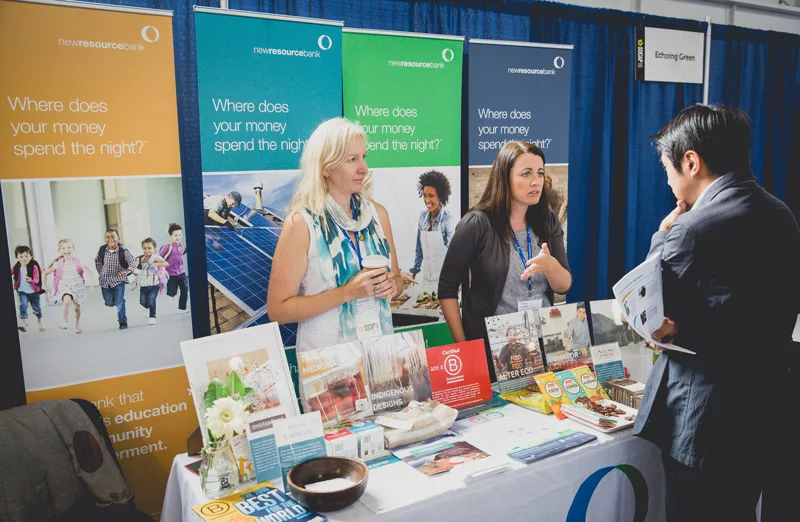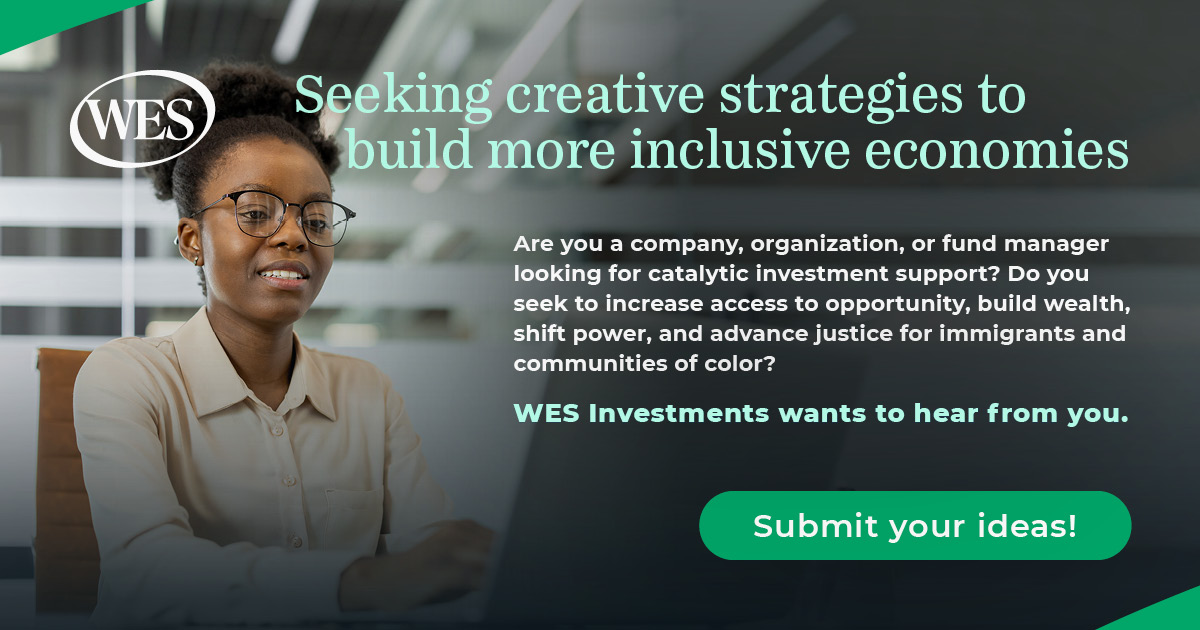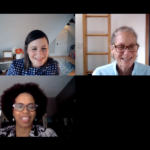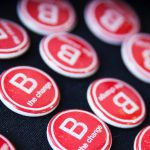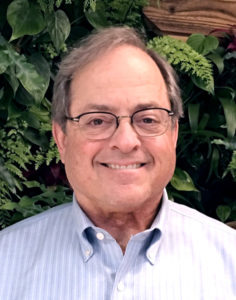
Vince Siciliano
Vincent Siciliano is President and CEO of New Resource Bank, a San Francisco-based, Certified B Corp bank that follows a triple-bottom-line model. New Resource Bank serves businesses and organizations building a better world. Vince will be a panelist at our upcoming SOCAP 365 event, The Secret Life of Bankers: How They Are the Key to Building the New Economy. We recently sat down with Vince to discuss how changes in our banking system, and our own approaches to banking and money, could help create a new economic system that is more fair, just, and regenerative.
SOCAP: You’ve written several recent blogs on how much our banking system has changed since it was first created. What was that shift and how has it impacted our society?
Vince Siciliano: If you look at finance back in the Stone Age and compare it to the Digital Age, what’s changed? When money was initially created, there were no coins. People traded in furs or cowrie shells or corn and so on. Eventually, trade in precious metal coins and the gold standard behind money became a big deal. At that point in time, money was very much a part of what we call the real economy, that being the economy of goods and services—things that you touch, stuff and services that you buy—as opposed to a financial economy, which is the economy of securitization, hedging, foreign exchange, et cetera.
Banking was rooted in the community; people were farming and trading and hunting and crafting. Money was very much attached to the land, to place, and to the people. It was relationship-based. We have really moved a long way from that. It’s taken a couple thousand years, but during the Industrial Revolution, people flocked to cities and factories, and we got detached from the land. Farmers now make up three percent or less of our country.
Similarly, money has dramatically changed. We broke the gold standard in 1933. Up until 1933, if you had a dollar bill, it would say “backed by gold in the US Treasury.” Theoretically, you could go to Fort Knox and give $218 and get a gold bar. That link was broken, and money came to be backed solely by the full faith and confidence of the US government.
When we look at money, it used to be very much in service to the economy around it–local, place-based. Now it’s the other way around: now money is its own industry and the economy is in service to money. There’s been a real shift.
At New Resource Bank, we’re talking about banking that serves the community rather than vice versa—the community that serves banks. And that would really be a switch, to get banks to be in service to the community again. The question is: how are we going to do that? I think it comes down to a couple of things.
One is going to be the role of policy in our government, which, under the current administration, may not be all that helpful, though I can’t say that definitively. The Glass-Steagall Act was repealed during the Clinton years, and it separated commercial banks from investment banks. When that was repealed, it gave rise to these very large financial institutions that mixed together everything. They have deposits that are insured by the US government which, in the end, will fund speculative trading and other things. President Trump recently discussed bringing a version of Glass-Steagall back, which was surprising. I have difficulty imagining that with his advisors and with the fact that Jamie Dimon seems to visit him at will, that’ll happen. So there’s a policy aspect to it that could significantly change the banking structure, if there was the desire to do so. I see banks becoming more like a utility, meaning that they’d be low risk, low return. Banks have a role in society and they shouldn’t be sort of hijacked, if you will, to other purposes.
I think, secondly, that technology is going to revolutionize banking in ways we can’t quite figure out yet. Thirdly, there is a human dimension to money that needs to change, and that’s probably another discussion, but I think our own relationship with money needs to be looked at. We are detached from money. We need to see money as something that can either be in service us, or that we serve. If we’re going to use it to serve others, then that’s a different perspective.
The topic of the upcoming SOCAP 365 event that you will be participating in is The Secret Life of Bankers, How They are the Key to Building the New Economy. So what is the New Economy that you would like to see built and what role would banking play in that?
VS: That’s a big question. There would be several aspects to the New Economy. One is that it would be based on sustainable values–the idea of sustainability, and the ecosystem, and resource use, and that whole bundle of ideas.
Number two, we would have a greater awareness of–and concern for–the future. In our current economy we don’t worry or think about the future. Seventh Generation, the consumer product company, drew inspiration for their name from the Iroquois, who considered the question of how their decisions would impact the future seven generations out. We entirely discount the future today. That’s the second element of the New Economy: that the future has a seat at the table today.
I think thirdly, the New Economy involves this idea of conscious capitalism. Unconscious capitalism pushes the margins of what’s legal. Conscious capitalism pushes the boundaries as to what’s ethical and what’s desirable. So that’s a complete reversal. Those are some broad strokes to the new economy.
What’s different about New Resource Bank and how you do business that’s different from how the traditional big banks are doing business?
VS: As a bank, our DNA, the way we run ourselves and the way we communicate with our shareholders and address the desires of our shareholders, all have to do with this sustainable look at our economy. That’s a completely different motivation for the business. We are looking at the triple-bottom-line. That encompasses what are we doing financially, what we are we doing for the community, and what are we doing for the environment. That’s not how normal banks think. With normal banks, it’s really going to be based on the financial equation. So that’s a huge thing.
Secondly, our actual approach to lending is different. We only lend to people that are a fit in this sustainable world, that are somewhere on the dimension of sustainability. There are learners and there are leaders, and we don’t care which you are, we just care that you’re moving into a more sustainable business model than the average business. One hundred percent of new loans have gone into what we call mission-oriented, values-based, or sustainably-oriented businesses. So overall, that’s now about 90% of our balance sheet. The remainder are legacy loans from before we made that decision eight years ago.
The third part of it relates to governance. Goals for internal diversity are set all the way up and including the board level. That’s a core value for us. So I would say those are all different from traditional banks.
How can just the average person begin to use money as an agent for change?
VS: Money is technically a store of value and a medium of exchange, so I would argue that money can represent your values and can be an agent of change. I think the idea that it represents your values is really what has the potential to drive change. So for example, if you go to the store, you might focus on buying organic food, to the extent that you can afford it. You might even be aware of the supply chain, and of whether some of the products are fair trade or not.
But taken out of the consumer area, what about your bank? What about your retirement plan? Where are they in this equation? Look for an organic bank just like you look for organic food: values should be the ultimate driver, and if people evenly applied the values that they hold surrounding sustainability, that would be a big deal. That would ultimately force change in the financial system.
What is inspiring you most right now? What’s giving you hope for the future?
VS: The millennial generation. That’s what’s giving me hope for the future, because they seem to be a lot more values-oriented, a lot more purpose-oriented, and they want it now. It took me most of my work career until I got to New Resource Bank and finally said, “Oh, I could actually integrate this into my life.” People want to lead an integrated life now, so they are bringing those values to work and that’s encouraging, because I don’t see how the big banks are going to remake themselves unless they’re forced to by either policy or the people, namely the millennial generation.
Please join us at our upcoming SOCAP 365 event, The Secret Life of Bankers: How They Are the Key to Building the New Economy, for your opportunity to join in the conversation with Vince Siciliano and other expert panelists including:
Konda Mason – Co-Director, Impact Hub Oakland (Moderator)
Lindsey Allen – Executive Director, Rainforest Action Network (RAN)
Morgan Simon – Co-Founder and Chair Transform Finance
Wednesday June 14th, 2017 at Impact Hub San Francisco. Doors Open at 5pm. Learn more and get your tickets here.
